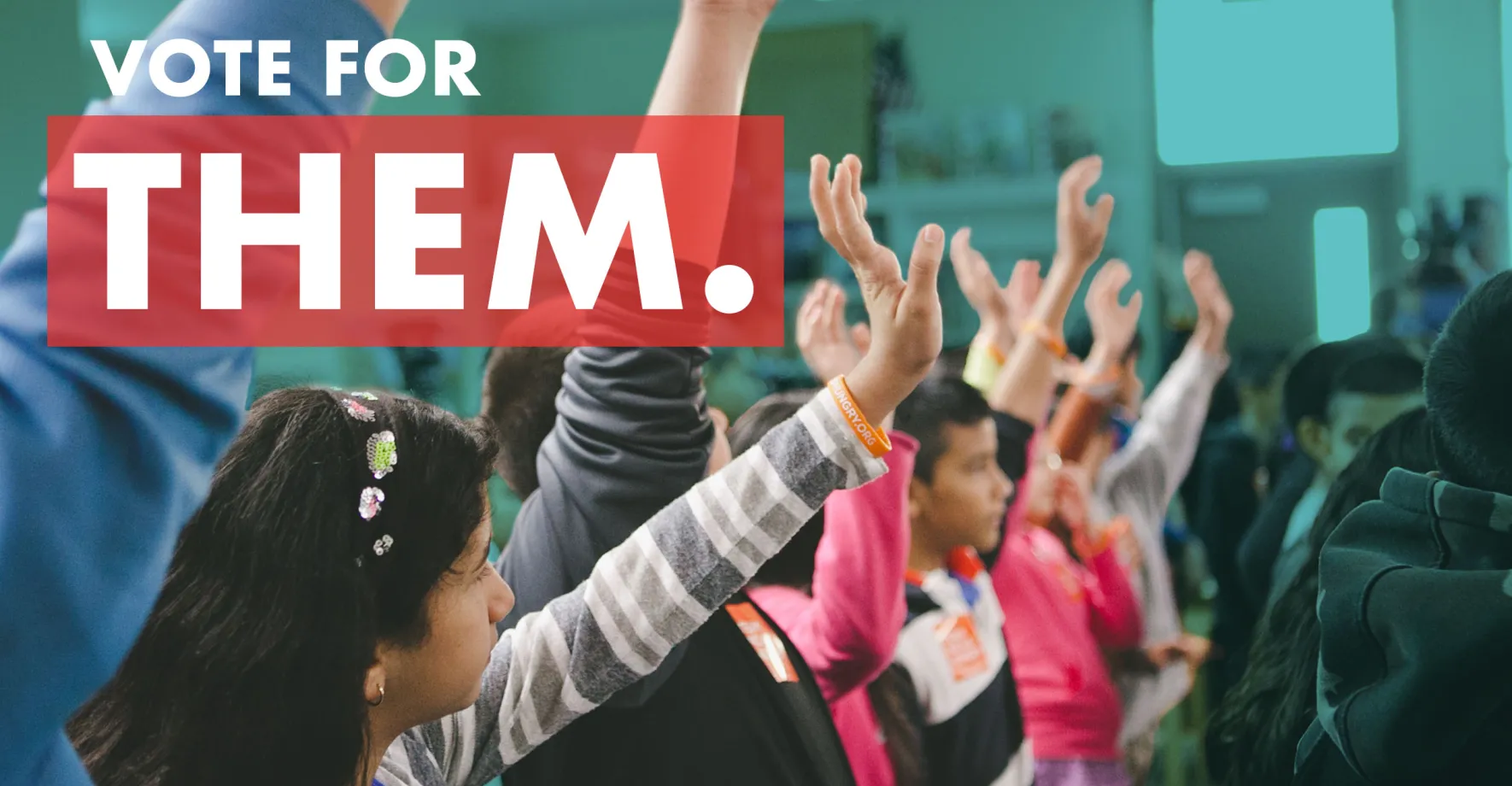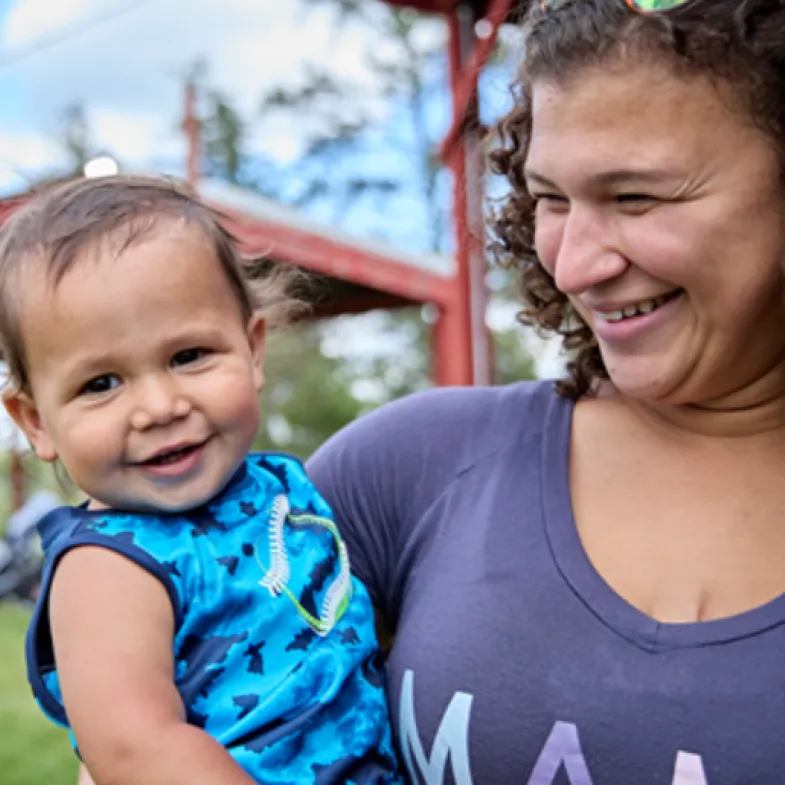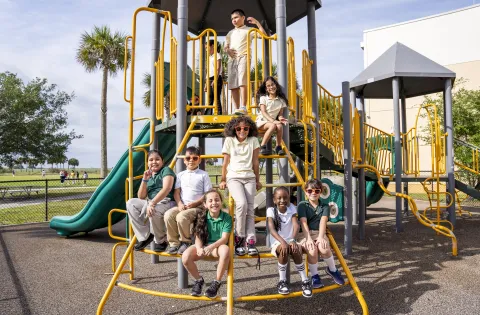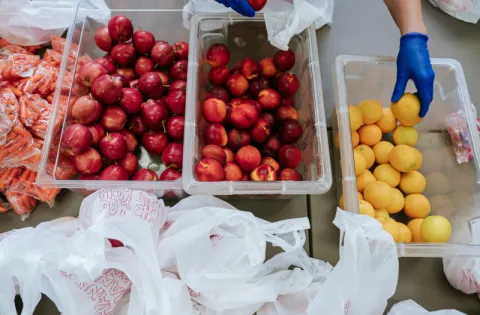"We have a voice and we must use it, especially now."

This 2024 election, Americans will vote for lawmakers who will have an important role in policies that will affect kid’s access to food. In fact, one of the most powerful tools to make No Kid Hungry a reality is voting. As we approach the upcoming elections, it’s crucial to recognize how our choices at the ballot box directly influence the future of our children, especially those facing hunger, and how important it is to show up for them.
No one feels this impact more deeply than a parent, especially a single mother, who often navigates challenges that are central to the current national conversation – food access, affordable groceries and childcare. These are complex issues that underscore the urgent need for policies that not only address hunger but also the broader economic barriers that single moms so often face.
This is why we partner with organizations like the Jeremiah Program, which is working to disrupt the cycle of poverty for single mothers and their children. This election cycle, they launched a Get Out the Vote campaign to both encourage single moms to vote and support their journey to the polls.
We spoke with two of these moms about making their voices heard in the upcoming election. They shared their stories of overcoming obstacles, their vote’s impact on their children’s futures and ways to motivate one another to get out the vote.
Kid's Can't Vote, But You Can
“It’s important to exercise this right to vote because it’s an opportunity to shape the future of our families and communities,” said Porsha, a single mom from St. Paul, Minnesota.
And she’s right. Voting is one of the most effective ways to advocate for our children’s futures. There's a lot at stake for these moms this election season. We will be electing lawmakers that will play a role in shaping access to benefits like SNAP, WIC, summer meals and the expanded Child Tax Credit, which are essential to ensure kids have the food that can fuel their future.
Sheila, a single mom from Austin, Texas, agrees. “Voting impacts what my child may have access to in the future,” she told us. “As a single Black mother, voting ensures that I have chosen officials who will advocate for the benefit of my child’s and my community’s needs. It’s the closest a parent can come to affecting policy.”
Talking about the importance of nutrition access benefits and the risk they are facing, Sheila added, “the proposed cuts to SNAP would severely impact families like mine. Affording meals is already a struggle. If the program’s budget is slashed, families like ours would see even fewer resources to cover essential nutrition.”
Overcoming Barriers to Voting
It’s not always that easy, though. Voting is a right, but there are often barriers that stand in the way. Transportation issues, lack of information about candidates and policies, and the hectic nature of single parenting can all pose obstacles.
Sheila shared, “I have an older vehicle and have been without transportation for some time, which affects my ability to make it to polling sites.” Yet she emphasized the importance of being proactive. “Remaining aware of public transit and other rideshare services that offer transportation to the polls helps me create an alternative plan.”
“I am proud to say that I have not missed an opportunity to vote,” Porsha told us. But she recognizes the barriers that stand in the way of getting to the polls, echoing Sheila’s concerns about transportation, as well as understanding the issues on the ballot, knowledge of the candidates and even feelings that your vote doesn’t matter.
Alternate ways to cast your ballot has been a game-changer for families. “We have the option to vote in person, which is my preference,” Porsha shared. “As well as mail-in and early voting, which I plan to explore this election.”
Make a Plan. Vote.
Beyond the barriers to voting, sometimes life just gets hectic. And parents, especially single mothers, often juggle multiple responsibilities. It often takes a village of support to get to the polls.
Through its Get Out the Vote campaign, the Jeremiah Program is ensuring its participating moms and alumni are well-informed, registered and fully prepared to vote by providing essential support like transportation to polling centers and childcare to give moms the flexibility to get to and from the polls.
When we asked Porsha and Sheila how single moms can motivate each other to get to the polls, Porsha suggested, “We can ask how they plan to vote, offer to do it together, and share our experiences.”
Sometimes, even the smallest acts – like watching each other’s children during voting – can make a significant difference. “Thirty minutes to an hour spent to exercise our right as women, while our children are cared for by someone we trust, sounds like time well spent,” Sheila told us. She added, “[Voting] shows our children that showing up for ourselves in this way means prioritizing activism and systemic influence rather than just being dissatisfied with what happens if we don’t [vote].”
The Jeremiah Program plans to grow its future Get Out the Vote efforts through public policy by creating nonpartisan opportunities that help moms understand and identify policies that benefit their communities.



